In a world defined by rapid change and technological acceleration, knowledge alone is no longer enough. The next generation will not only be measured by what they know, but by what they can create.
At Wycombe Abbey School Hong Kong, we believe the future belongs to individuals who can question, design, and build the solutions our world will need next.
Here’s why creation must sit at the heart of modern education.
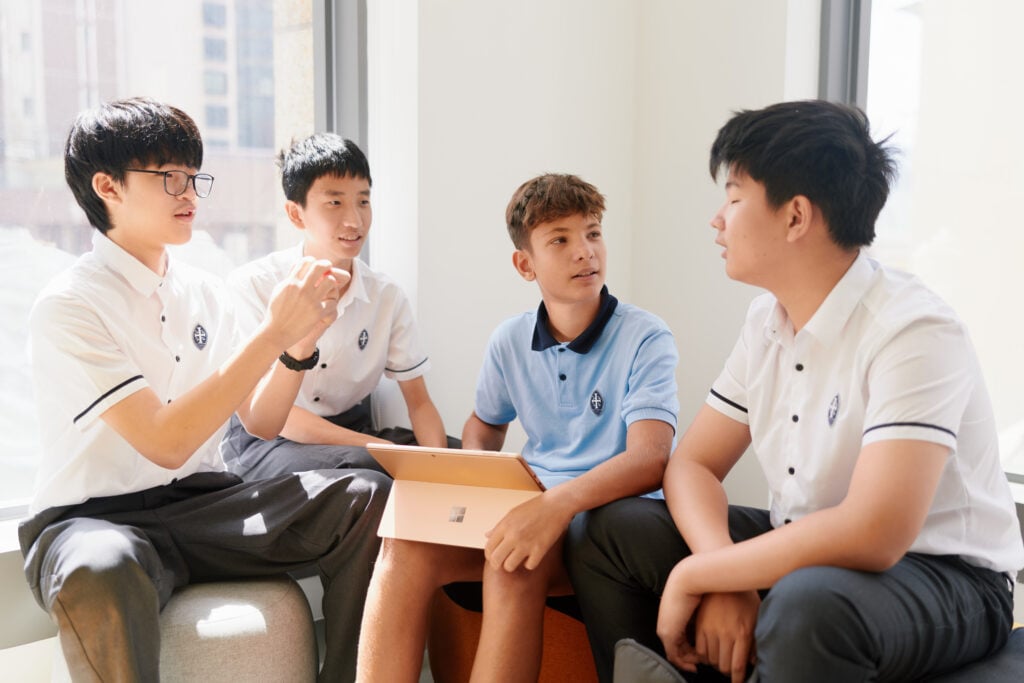
1. Because Knowledge Is Now Everywhere
For centuries, education centred on acquiring and recalling information. Memorisation and repetition once defined success because access to knowledge was scarce. But in an age of search engines, instant connectivity, and artificial intelligence, facts are available within seconds. The question is no longer “Do you know it?” but “What can you do with it?”
What truly matters today is how pupils use knowledge — how they connect ideas across disciplines, interpret information critically, and apply it in ways that create meaning and impact. The ability to analyse, synthesise, and think independently has become the new measure of intelligence.
Creation transforms learning from a passive activity into an active pursuit. When pupils build, make, and design, they transform theory into practice. They deepen their understanding by doing, not just by knowing. This process encourages ownership, reflection, and curiosity, which are qualities that extend beyond the classroom.
At Wycombe Abbey School Hong Kong, we see this shift as essential for preparing future leaders. Pupils are not simply absorbing content; they are learning to navigate an age of information abundance with discernment, creativity, and confidence.
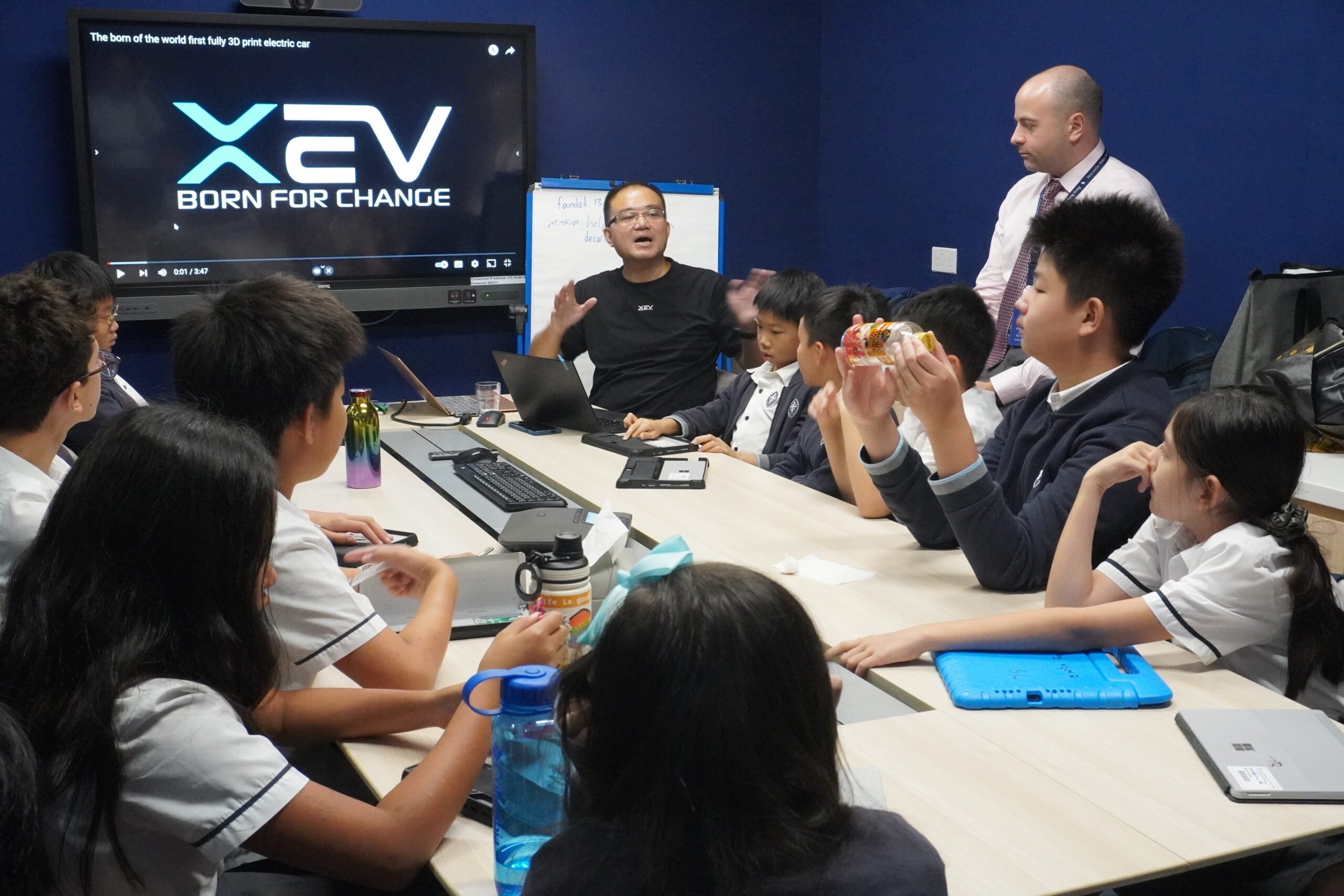
2. Because the Future of Work Demands Adaptability and Lifelong Learning
The world our pupils will enter is evolving faster than any generation before. Automation, globalisation, and artificial intelligence are reshaping industries, creating entirely new roles while rendering others obsolete. Many of today’s pupils will build careers in fields that don’t yet exist, solving problems we cannot yet imagine.
In such a world, success will rely not just on what pupils know but on how they adapt. The ability to think flexibly, to learn, unlearn, and relearn, will define the next generation of professionals and leaders. Employers already value creativity, communication, and collaboration above rote expertise, recognising that adaptability drives innovation.
At Wycombe Abbey School Hong Kong, adaptability is woven into the learning experience — from project-based collaboration to our forward-looking Entrepreneurship Programme. Pupils learn to approach change with curiosity instead of fear, to see it as an invitation to grow. They develop the confidence to make decisions amid uncertainty and the initiative to continue learning long after they leave the classroom.
As John Cheng, CFO at BE Education and Entrepreneurship Curriculum Developer at Wycombe Abbey School Hong Kong, explains, “At our Entrepreneurship Programme, we believe that making mistakes is not only acceptable—it’s essential. Students learn to anticipate challenges, adapt quickly, and find alternative solutions. This process builds resilience, independence, and confidence.”
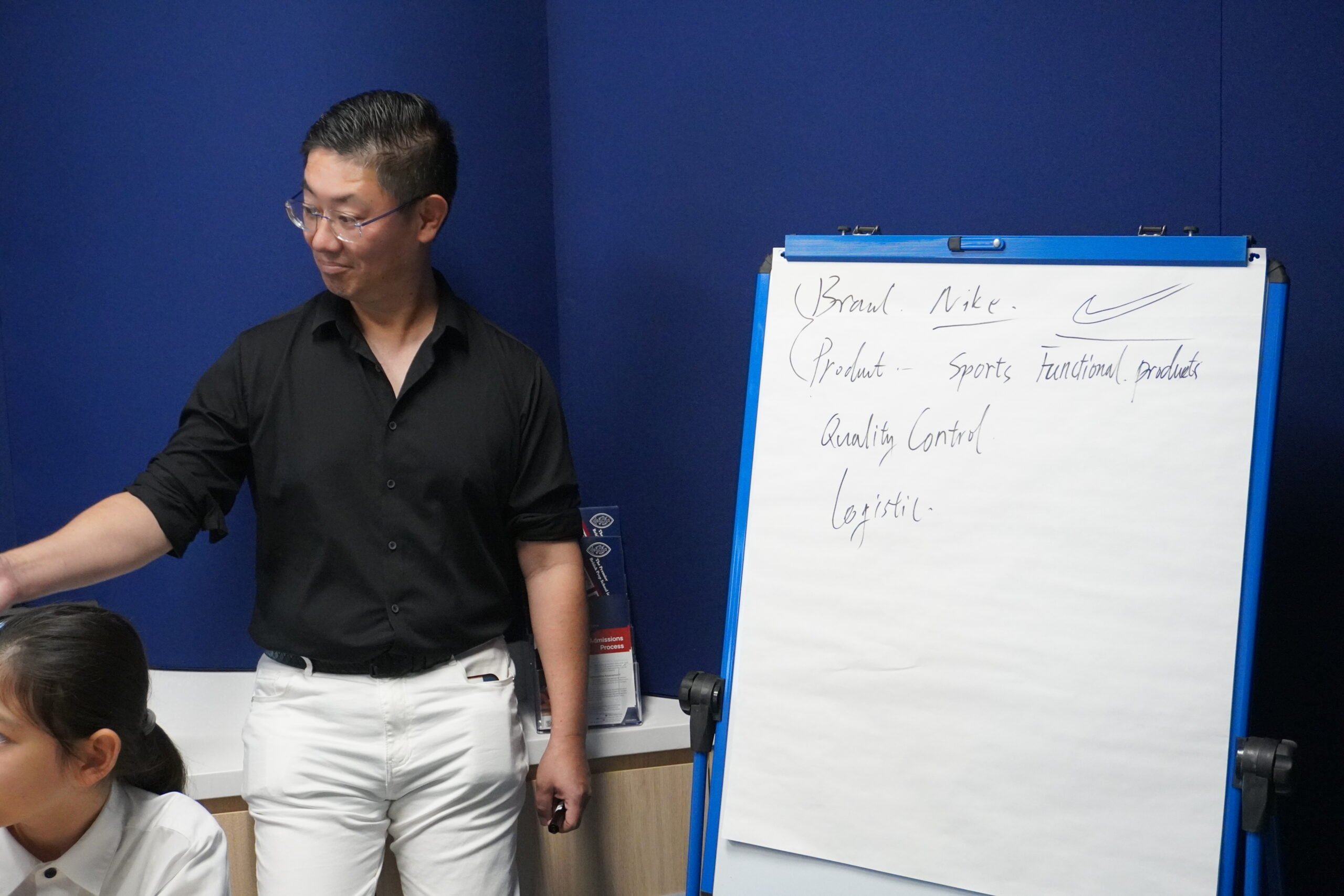
3. Because Creation Builds the Human Skills Technology Can’t Replace
As technology advances, the most valuable skills of the future will be the most human ones. Creativity, collaboration, empathy, and resilience — these are the qualities that machines cannot replicate and that the modern world needs most.
The act of creation is where these qualities take shape. When pupils design, test, and refine their ideas, they learn to think critically, adapt quickly, and persevere through challenges. They discover that progress comes through persistence, not perfection, and that failure is an essential part of growth.
As Cheng notes, “Traditional education often teaches students how to get the right answer. But in the real world, especially in business, success rarely comes from simply being ‘right.’ Many of the greatest innovations are born from countless failures, followed by persistence and creative problem-solving.”
Collaboration is central to this process. The most transformative ideas emerge when diverse perspectives come together — when pupils learn to listen, share, and refine ideas through dialogue. In doing so, they cultivate empathy and respect, understanding that innovation grows not from individual brilliance but from collective effort.
At Wycombe Abbey School Hong Kong, this balance of creativity and character sits at the heart of our philosophy. Pupils learn that the skills they build through creation — curiosity, resilience, and collaboration — are not only tools for success but the essence of leadership in a world driven by connection and change.
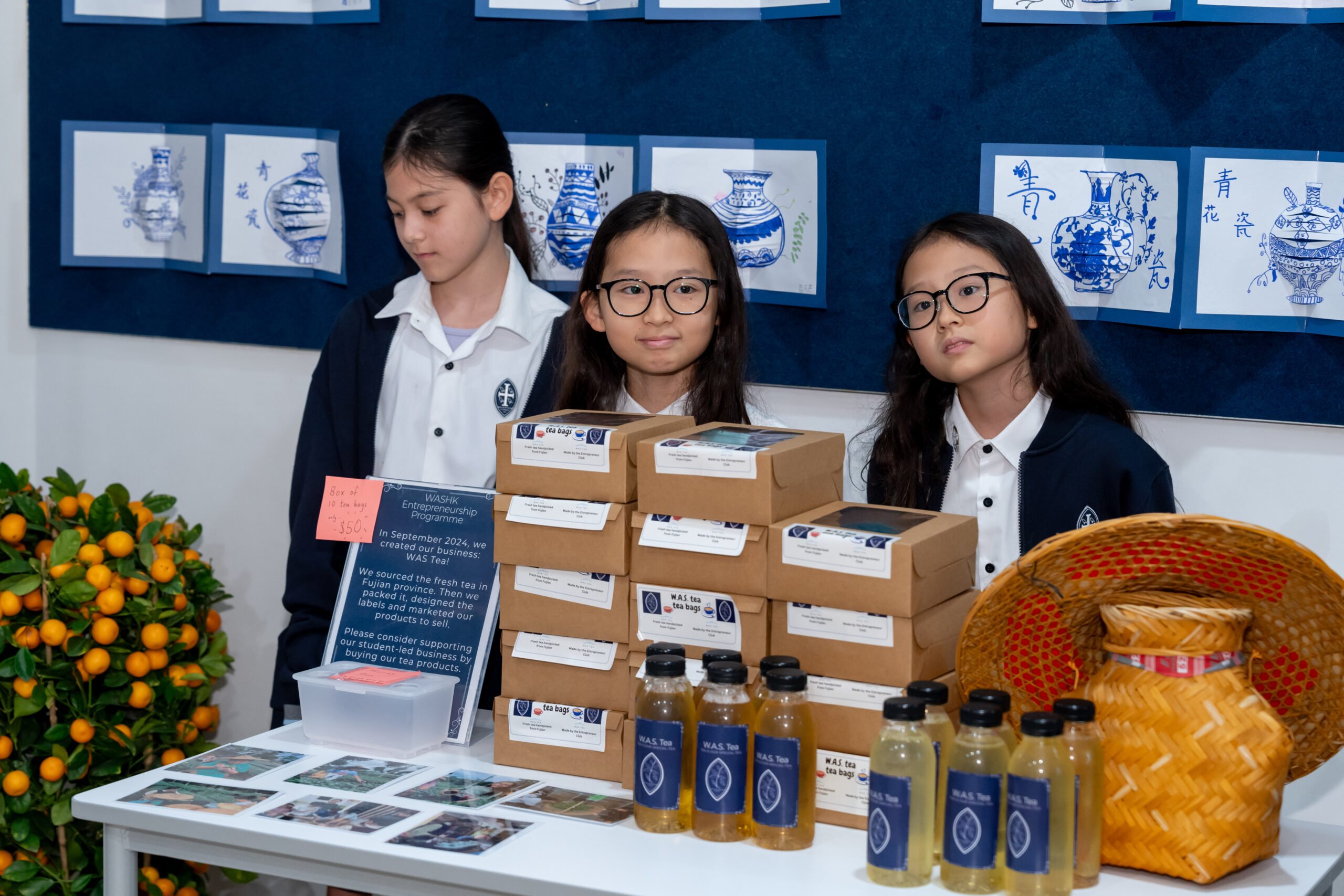
Entrepreneurship: Preparing Pupils for the Future
Entrepreneurship today is no longer limited to those who start businesses. It’s a mindset that defines how people think, solve problems, and create value. Whether a pupil grows into an innovator, a scientist, or a professional in any field, the ability to think entrepreneurially will be invaluable.
At Wycombe Abbey School Hong Kong, one of the ways we nurture this mindset is through our Entrepreneurship Programme, where pupils turn ideas into real-world outcomes. Through design thinking, teamwork, and reflective practice, they learn to identify challenges, develop solutions, and adapt based on feedback.
Cheng emphasises the importance of ownership and responsibility, explaining, “Each student is entrusted with real projects and tasks that matter. Through this sense of ownership, they begin to understand the importance of responsibility naturally. They learn to care about outcomes, manage time and resources, and see their work through to completion.”
Entrepreneurship builds initiative, empathy, and courage — qualities that will matter as much to the engineer or educator of tomorrow as to the entrepreneur. In an unpredictable world, it is this creative confidence, the willingness to take risks, learn, and build, that defines true future-readiness.
Cheng adds, “We’re not teaching children to run companies. We’re helping them recognise that they have agency. Whether they’re inventing, leading, or creating, they’re learning to see themselves as problem-solvers.”
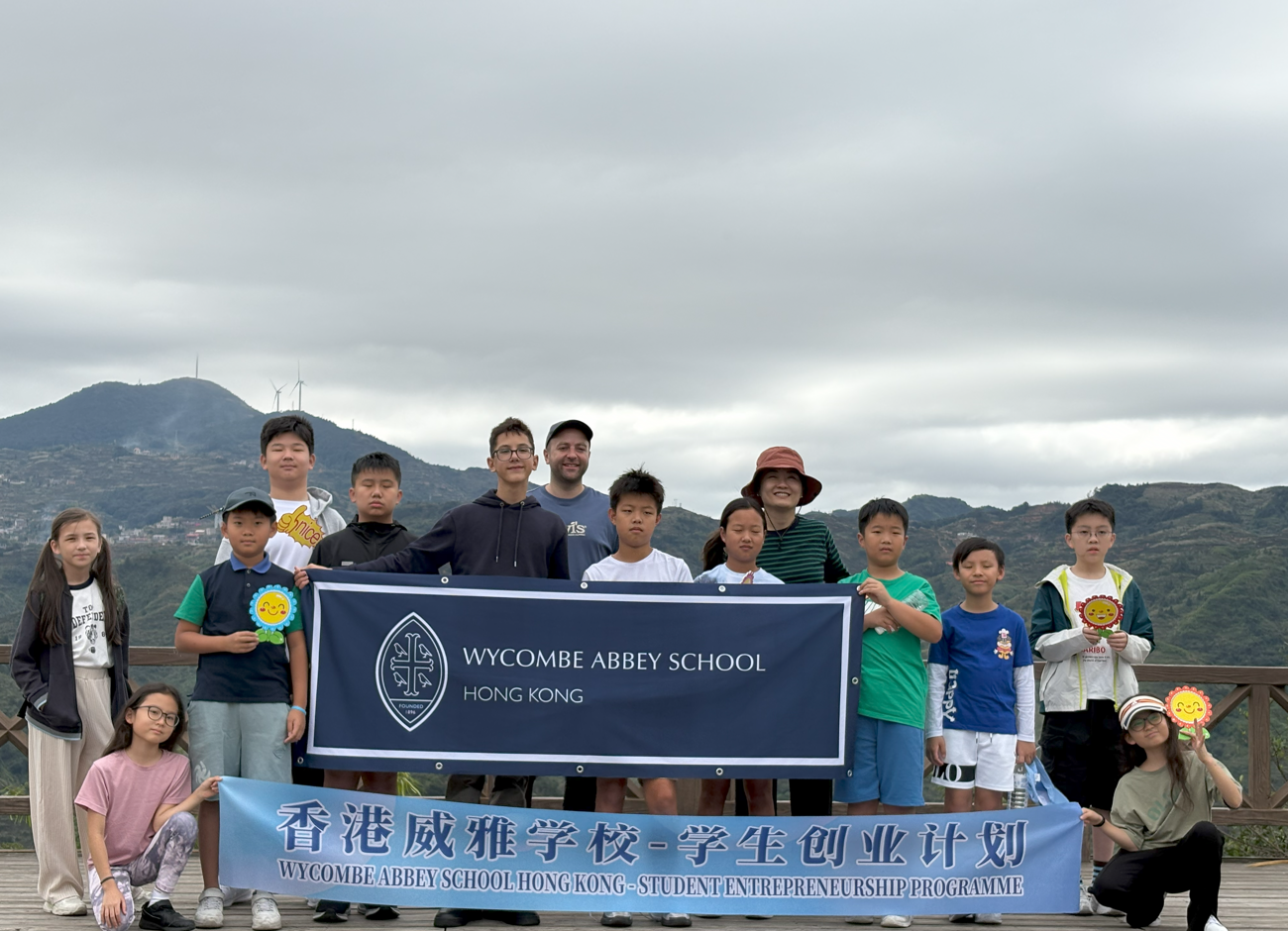
The Future Belongs to Those Who Create
The challenges of the future, from sustainability to technology to global citizenship, will require imagination and leadership. Knowledge is the foundation, but creation is the catalyst.
By learning to question, design, and build, pupils develop not only intellect but also empathy, courage, and purpose — the hallmarks of the next generation of leaders.
As education continues to evolve in Hong Kong and beyond, schools must shift from teaching pupils what to think to helping them discover how to think and how to create.
At Wycombe Abbey School Hong Kong, we see creativity, entrepreneurship, and collaboration not as add-ons but as essential to learning itself. Because the next generation won’t just inherit the world — they’ll reimagine it and build what comes next.
Learn more about Wycombe Abbey School Hong Kong and contact us to book a tour or speak with our admissions team.